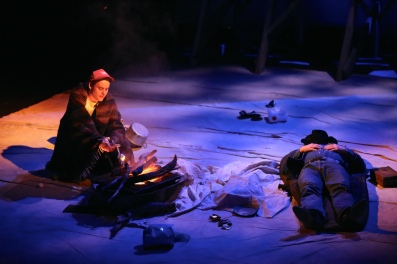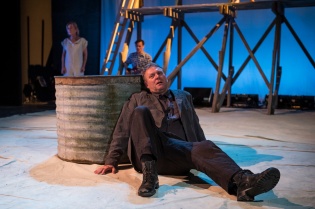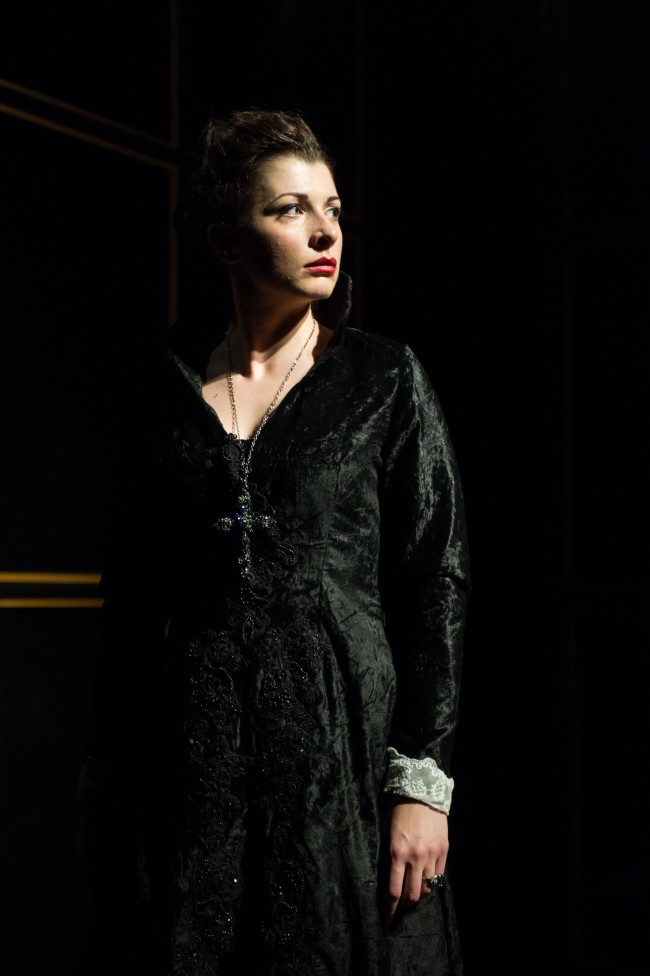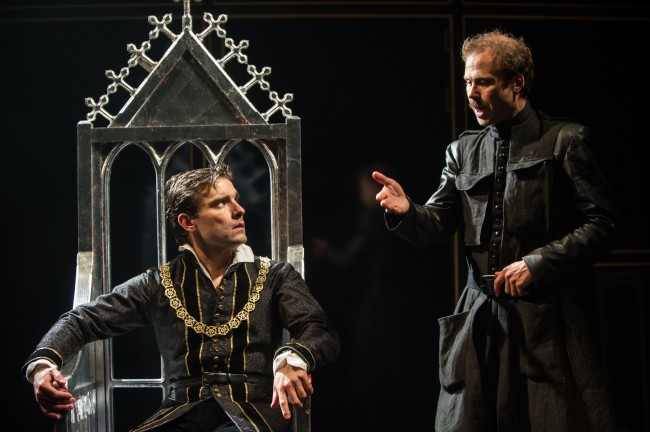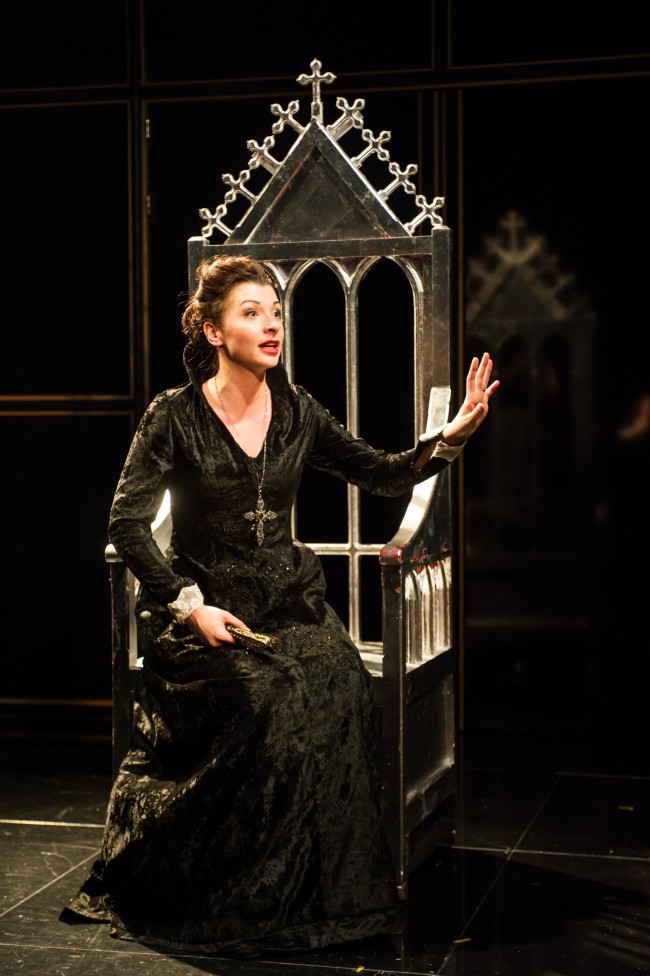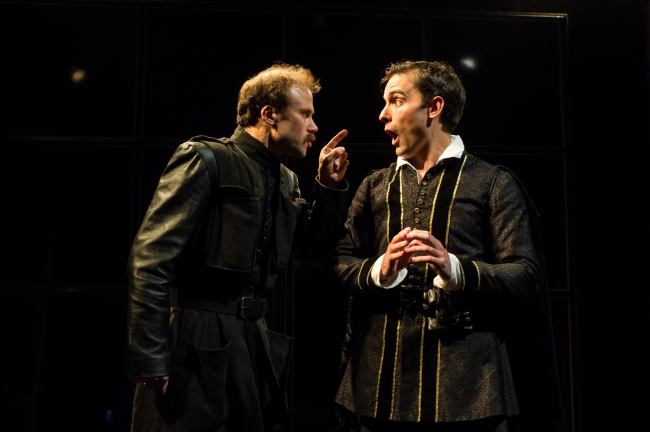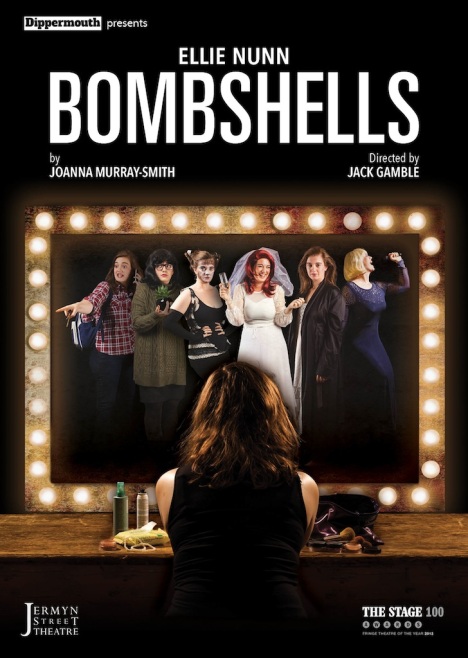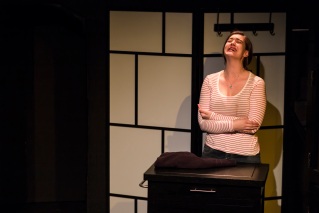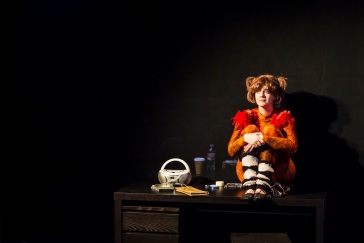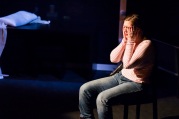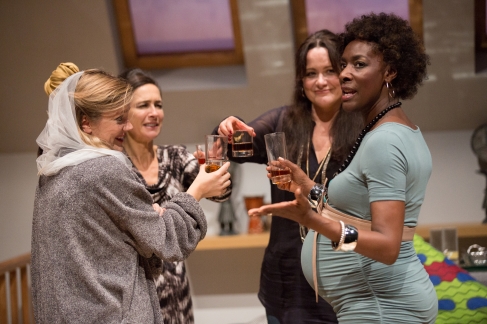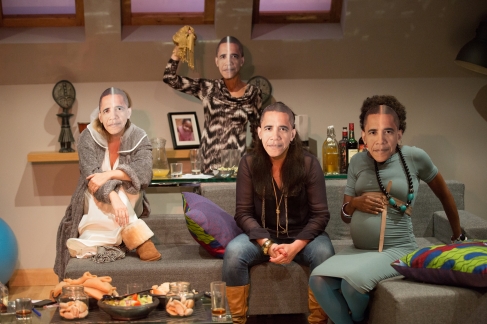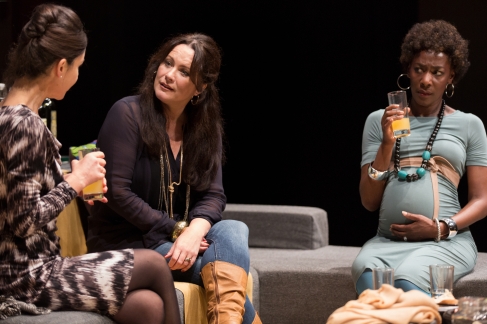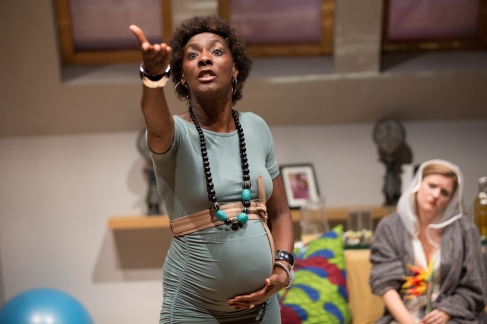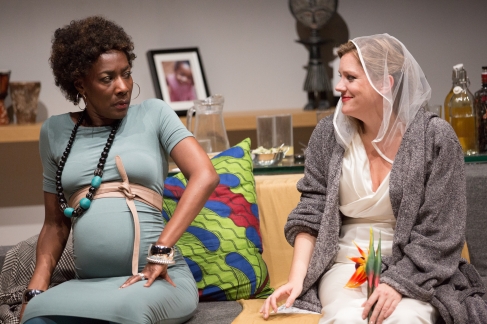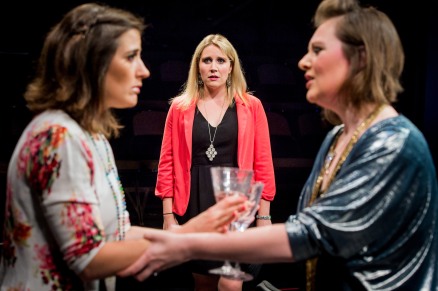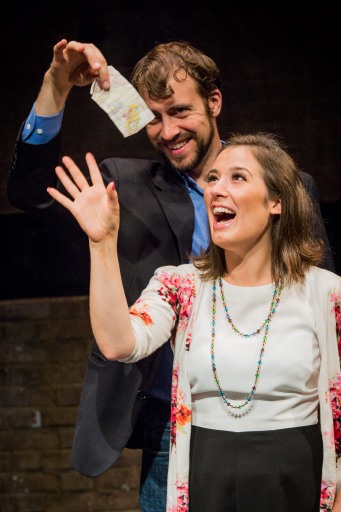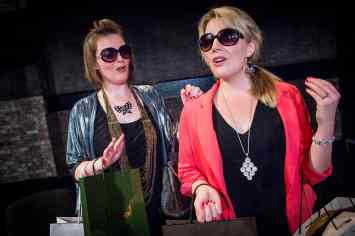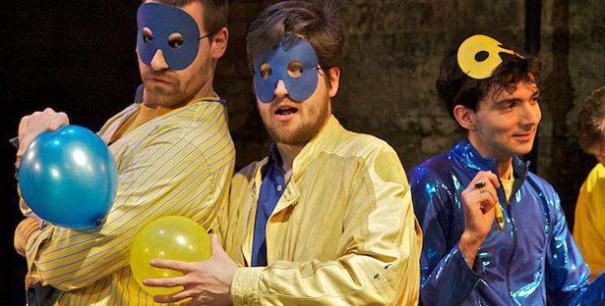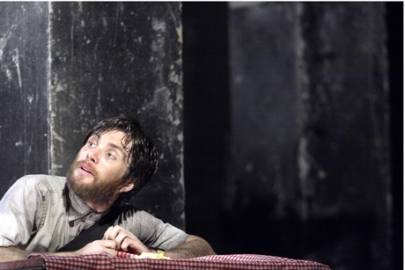BY TIRSO DE MOLINA, IN A NEW TRANSLATION BY SEAN O’BRIEN
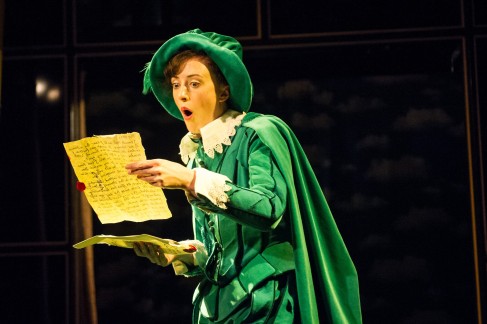
First appeared in The British Theatre Guide on 17 January 2014
For a fleeting moment it looked like the feisty female lead might – just might – beat the men at their own game. Revenge wreaked, I pictured this green-garbed girl pouring scorn on the advances of her faithless former lover and exiting stage left pursued by the fashion victims (a study in green) that she created.
Sadly however, although Sean O’Brien updates the words, he doesn’t update the story. Don Gil of the Green Breeches, one of seventeenth-century Spanish playwright Tirso de Molina’s early comedies, is, in the end, a conventional play. The women may appear to lead the action, but none of them end up with what they want: Donna Juana falls back into a relationship with a man who dropped her for a wealthier version; Donna Ines ends up with the unpalatable suitor she spends most of the play avoiding; even Donna Clara can’t get the Don Gil of her dreams.
In this production, both men and women struggle to escape their respective gender roles (Caramanchel sees “hermaphrodites” round every corner), but are ultimately thwarted by Marriage, the ultimate heterosexual convention.
That’s not to say the cast doesn’t have fun blurring the gender lines. A dance sequence between Donna Juana, in masculine dress as Don Gil, is as sexually charged as it is comic – more erotic than Shakespeare’s Viola and Orsino.
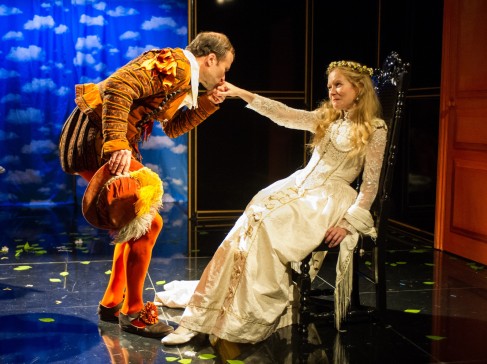 For Don Gil of the Green Breeches is like Twelfth Night on speed. The girl doesn’t just dress up as a boy; she takes the man she wants to snare’s fake name and then pretends to be another girl dressing up as the male character she’s created, while all the other men want to dress up as her – or him – or, well you get the idea. The layers of dramatic irony used to perfection by Shakespeare are doubled and then stripped away, when Elvira’s likeness to Don Gil isn’t just remarked upon, but picked apart unwittingly by Donna Ines.
For Don Gil of the Green Breeches is like Twelfth Night on speed. The girl doesn’t just dress up as a boy; she takes the man she wants to snare’s fake name and then pretends to be another girl dressing up as the male character she’s created, while all the other men want to dress up as her – or him – or, well you get the idea. The layers of dramatic irony used to perfection by Shakespeare are doubled and then stripped away, when Elvira’s likeness to Don Gil isn’t just remarked upon, but picked apart unwittingly by Donna Ines.
In a final nod to Twelfth Night, the eponymous green breeches, symbol of Donna Ines’ perfect man, become as absurd as Malvolio’s yellow stockings when character after character enters the stage sporting them.
This new translation of the Spanish is beautiful, lyrical phrases hidden among the deliberate full stops of rhyming couplets. O’Brien brings the text into twenty-first-century English without losing the occasional Spanish turn of phrase, even if a few of the jokes in the first scene fall flat.
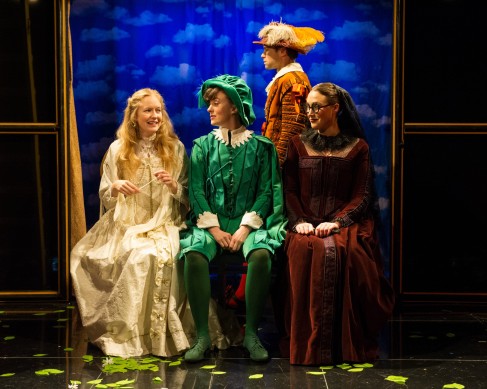 The cast is the strongest thing about this production. Hedydd Dylan’s energy and purpose in her physicality makes her as alluring in drag as she is in her velvet dress. Chris Andrew Mellon’s mellifluous voice turns on a knife edge between silky smarminess and cuttingly nasty asides. These asides, used freely by all the characters, work perfectly in the Arcola’s small space, creating an even more intimate experience for the audience.
The cast is the strongest thing about this production. Hedydd Dylan’s energy and purpose in her physicality makes her as alluring in drag as she is in her velvet dress. Chris Andrew Mellon’s mellifluous voice turns on a knife edge between silky smarminess and cuttingly nasty asides. These asides, used freely by all the characters, work perfectly in the Arcola’s small space, creating an even more intimate experience for the audience.
There is a danger the performance descends into panto territory: Don Martin as a revamped Spencer Matthews, as good-looking as he is self-obsessed; Donna Ines as the spoilt Queenie from Blackadder II, alternating between scrunched up face and overblown sexual innuendo; Donna Clara’s vast drawn-on beauty spot; and Don Juan’s orange getup complete with frilly garter (another Malvolio throwback). When Donna Juana asks, “But subtle would you not agree?” the audience’s laughter suggests otherwise.
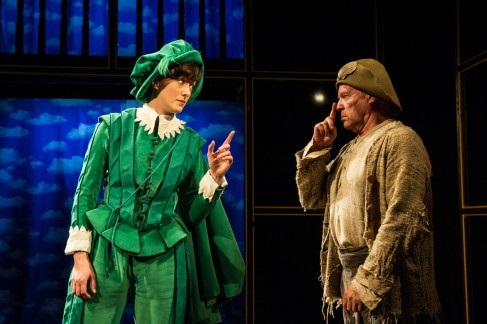 So too does it feel too easy to camp up Don Juan, the unfavourable suitor and general thorn in the side. Instead of cashing in on the cheap laughs at a fey chap, why not unpick why we still laugh at “girly” men and “manly” girls?
So too does it feel too easy to camp up Don Juan, the unfavourable suitor and general thorn in the side. Instead of cashing in on the cheap laughs at a fey chap, why not unpick why we still laugh at “girly” men and “manly” girls?
All in all, it would have been nice to see director Mehmet Ergen, founder and artistic director at the Arcola, doing something a bit more radical with this. That is, after all, his forte. But as this is part of the theatre’s Spanish Golden Age Season, led by well-known Iberophile Laurence Boswell, perhaps faithfulness to the text won out over originality.
Tags: arcola, blackadder, british theatre guide, chris andrew, don gil, golden age, green breeches, hedydd dylan, laurence boswell, mehmet ergen, review, sean o'brien, shakespeare, spanish, theatre, tirso de molina, translate, translation, twelfth night
